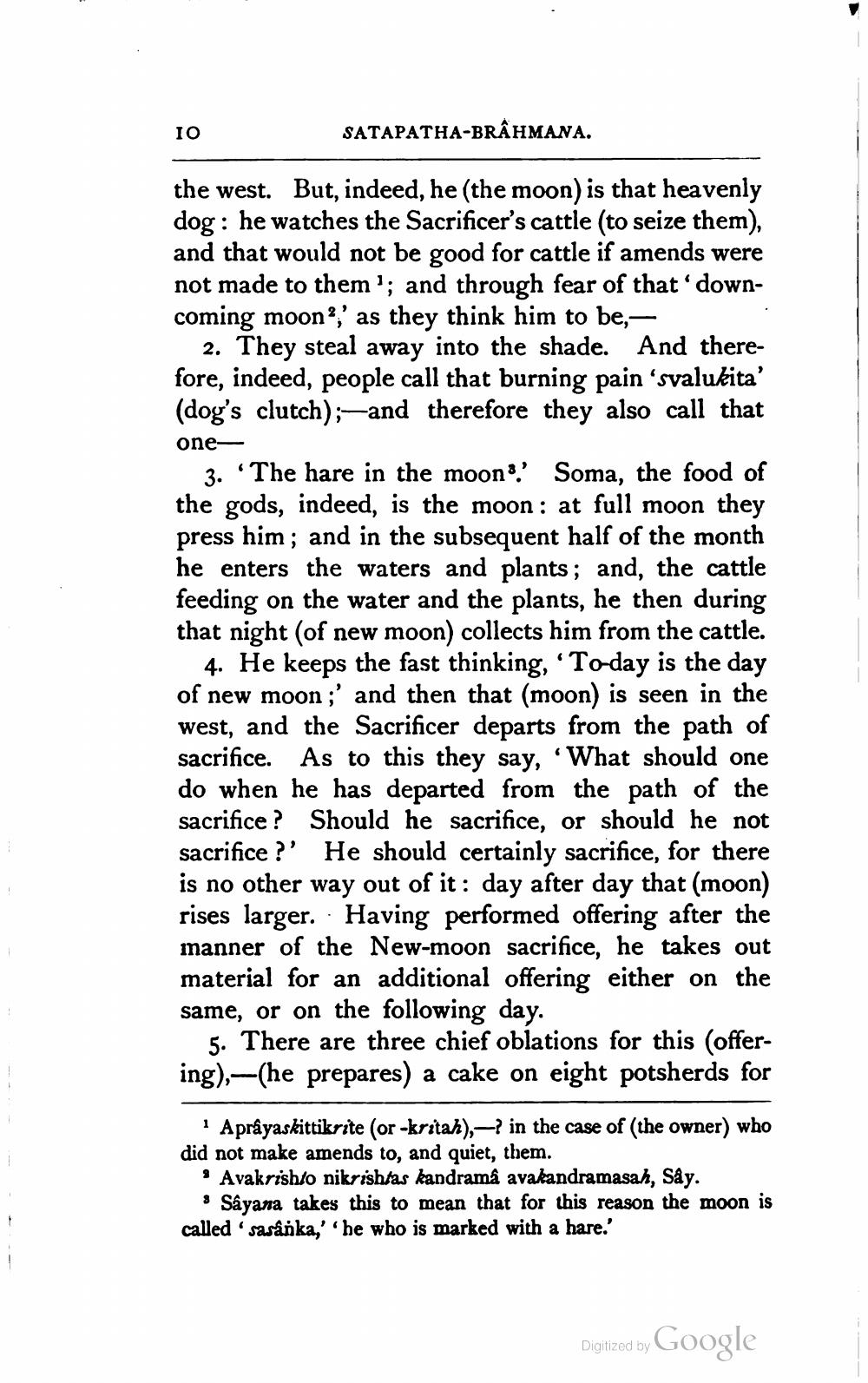________________
SATAPATHA-BRAHMANA.
the west. But, indeed, he (the moon) is that heavenly dog: he watches the Sacrificer's cattle (to seize them), and that would not be good for cattle if amends were not made to them1; and through fear of that 'downcoming moon',' as they think him to be,—
2. They steal away into the shade. And therefore, indeed, people call that burning pain 'svalukita' (dog's clutch); and therefore they also call that
one
10
6
3. The hare in the moon. Soma, the food of the gods, indeed, is the moon: at full moon they press him; and in the subsequent half of the month he enters the waters and plants; and, the cattle feeding on the water and the plants, he then during that night (of new moon) collects him from the cattle.
4. He keeps the fast thinking, 'To-day is the day of new moon;' and then that (moon) is seen in the west, and the Sacrificer departs from the path of sacrifice. As to this they say, 'What should one do when he has departed from the path of the sacrifice? Should he sacrifice, or should he not sacrifice?' He should certainly sacrifice, for there is no other way out of it: day after day that (moon) rises larger. Having performed offering after the manner of the New-moon sacrifice, he takes out material for an additional offering either on the same, or on the following day.
5. There are three chief oblations for this (offering), (he prepares) a cake on eight potsherds for
1 Aprâyaskittikrite (or -kritah),-? in the case of (the owner) who did not make amends to, and quiet, them.
• Avakrishto nikrishtas kandramâ avakandramasah, Sây.
Sâyana takes this to mean that for this reason the moon is called 'sasáňka,' 'he who is marked with a hare.'
Digitized by
Google




